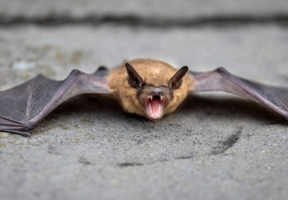
With the weather warming up, the Illinois Department of Public Health (IDPH) is warning the public to beware of wild animals that may carry rabies, especially bats, as they become more active this time of year. The warning follows the discovery since May 10 of the first two rabid bats of 2024 in the state in Cook and Will counties, IDPH said. IDPH is also reminding the public to make sure that rabies vaccinations are up to date for pets and any valuable livestock and horses for which a rabies vaccine is available. If a pet is exposed to a high-risk wild animal – such as a bat, skunk, raccoons, fox or coyote – pet owners should immediately contact a veterinarian for advice. If you have been bitten by any animal, seek immediate medical attention. Bite wounds can become infected and if the animal is high risk for rabies, preventive treatment, must begin quickly. The following tips can help prevent the spread of rabies:
• Do not touch, feed, or unintentionally attract wild animals with open garbage cans or litter.
• Never adopt wild animals or bring them into your home. Do not try to nurse sick, wild animals to health. Call animal control or an animal rescue agency for assistance.
• Teach children never to handle unfamiliar animals, wild or domestic, even if they appear friendly. “Love your own, leave other animals alone” is a good principle for children to learn to reduce the risk of exposures to rabid animals.
• Maintain homes and other buildings so bats cannot get inside.
Steps you can take to capture the bat are:
• When the bat lands, approach it slowly, while wearing gloves, and place a box or coffee can over it.
• Slide a piece of cardboard under the container to trap the bat inside.
• Tape the cardboard to the container securely, and punch small holes in the cardboard, allowing the bat to breathe.










